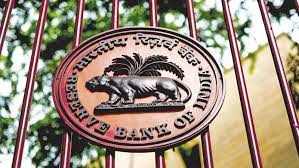If you are looking for a bank locker, get prepared to open a term deposit that would cover three years of rent and the charges for breaking open the locker in case of such eventuality.
In a set of revised guidelines for the hiring of lockers released on 18 August, the Reserve Bank of India (RBI) has also said that in case of fire, theft, building collapse or frauds by bank employees, the liability of banks will be limited to 100 times its annual rent.
Under the revised guidelines which will come into effect from 1 January 2022, the locker hirers will have to agree to a new clause in the agreement prohibiting them from keeping anything illegal or hazardous in lockers. The banks will be required to incorporate this new clause in the locker agreement, the RBI said on 18 August.
On the clause for allowing banks to obtain a term deposit at the time of allotment, the RBI said the purpose was to ensure prompt payment of locker rent.
Existing customers or those who have a satisfactory operative account will, however, not have to start a term deposit in the bank in lieu of being given the locker facility.
Banks should not insist on such term deposits from the existing locker holders or those who have a satisfactory operative account, RBI said.
"The packaging of allotment of locker facility with the placement of term deposits beyond what is specifically permitted ... will be considered as a restrictive practice," it added.
Banks will need to maintain a branch-wise list of vacant lockers as well as a wait-list for the purpose of allotment of lockers and ensure transparency in allotment of lockers.
“In order to facilitate customers making informed choices, banks shall maintain a branch wise list of vacant lockers as well as a wait-list in Core Banking System (CBS) or any other computerised system compliant with Cyber Security Framework issued by RBI, for the purpose of allotment of lockers and ensure transparency in allotment of lockers," the central bank said.
Banks shall acknowledge the receipt of all applications for allotment of locker and provide a wait list number to the customers, if the lockers are not available for allotment.
Banks would also need to adopt the model locker agreement to be framed by Indian Banks’ Association (IBA).
The RBI has also detailed the compensation policy and liability of banks in the revised instructions.
The banks will have to put in place a board-approved policy outlining the responsibility owed by them for any loss or damage to the contents of the lockers due to their negligence.
"The bank shall not be liable for any damage and/or loss of contents of locker arising from natural calamities or acts of God like earthquake, floods, lightning and thunderstorm or any act that is attributable to the sole fault or negligence of the customer," it said.
Banks should, however, exercise appropriate care to their locker systems to protect their premises from such catastrophes.
Also, it is the responsibility of banks to take all steps for the safety and security of the premises in which the safe deposit vaults are housed.
"As banks cannot claim that they bear no liability towards their customers for loss of contents of the locker, in instances where loss of contents of locker are due incidents (like fire, theft/ burglary/ robbery, dacoity,) or attributable to fraud committed by its employee(s), the banks'' liability shall be for an amount equivalent to one hundred times the prevailing annual rent of the safe deposit locker," RBI said.




